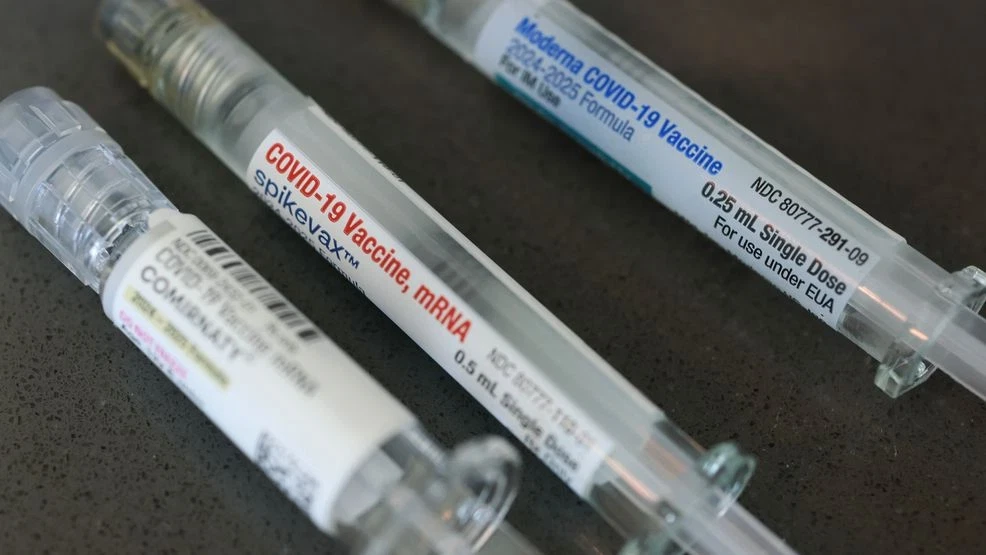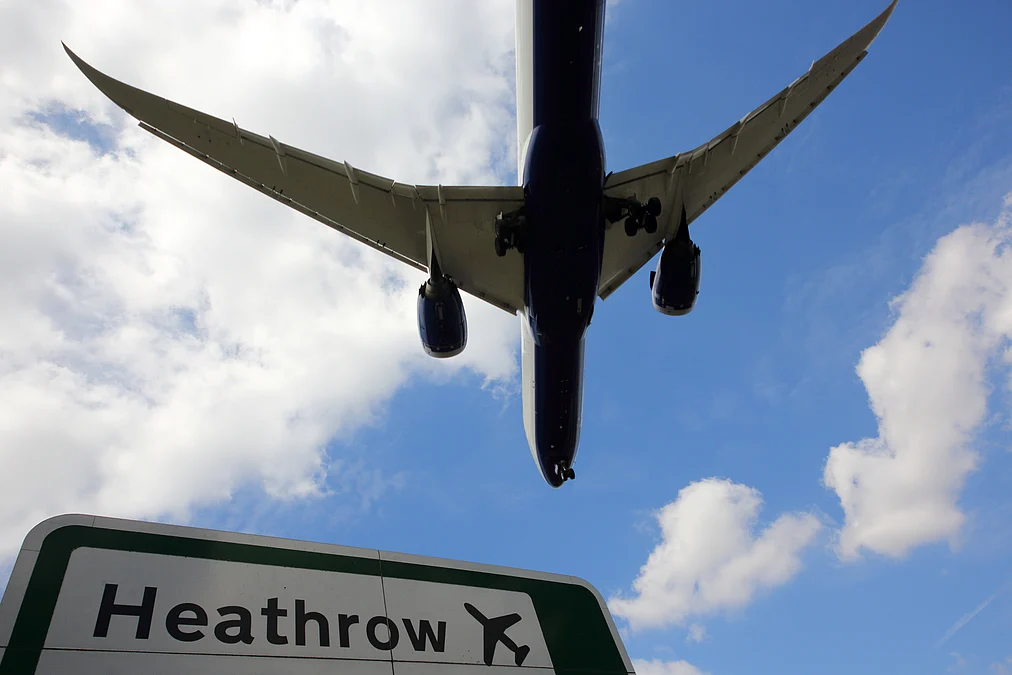
The panel that develops vaccine recommendations for the Centers for Disease Control and Prevention proposed one change to but tabled a vote for another before turning their attention to the hotly debated COVID-19 vaccines.
The continued its two-day meeting Friday after voting Thursday to recommend a standalone chickenpox vaccination in toddlers to reduce their risk of febrile seizures.
A combination MMRV vaccine is available, which includes measles, mumps, rubella and varicella (chickenpox) immunizations.
All of those vaccines are recommended for kids at 12 months and again between 4 and 6 years.
The panel recommended a separate and chickenpox shot for children on the initial doses.
The panel on Friday decided to table a vote on delaying the first dose of the hepatitis B vaccine, which is currently recommended at birth.
The ACIP members planned to vote on changing the hepatitis B first-dose recommendation from birth to 1 month old.
, the director of Brown University’s Pandemic Center, downplayed the panel’s recommended change for the MMRV vaccine, because she said the combined version already wasn’t the preferred version.
“Practically, I don’t think it’s a change,” she said.
Nuzzo voiced support for keeping the recommendation for the first dose of the vaccine at birth.
A mother infected with hepatitis B may pass the disease to her baby.
Nuzzo called the proposal to delay the initial dose a month after birth “incredibly arbitrary.”
She said the argument against universal hepatitis B shots at birth is one focused on screening the mothers. The argument goes: There’s no reason to vaccinate the baby if the mother doesn’t have hepatitis B.
Nuzzo called that “a reasonable-sounding alternative hypothesis.”
“And in an ideal world, I think that works,” she continued. “Except we don’t live in an ideal world, and we’ve already tried that experiment, which is that there has been an attempt to screen mothers for hepatitis B, and the experience from that is that it’s still resulted in unacceptably high levels of infection in infants, because not every mother has the kind of care that allows that screening to happen. So, too many women were falling through the cracks, and too many babies were suffering as a result. Again, the vaccine is not harmful for infants. It is protective for infants. So, giving it at birth makes sense.”
Nuzzo noted that a mother already has the right to refuse the hepatitis B shot for her baby at birth.
And Nuzzo said pushing the recommendation to 1 month old just adds more to the plate of exhausted new parents, forcing them to schedule an appointment to follow up on what is now done before their baby leaves the hospital at birth.
“So, it’s not a matter of giving a mother an additional choice. In fact, what they are proposing is actually taking a choice away from a mother. … You’re putting a barrier, an obstacle, that needs to be surmounted,” she said.
The American Academy of Pediatrics was , saying the meeting “promoted false claims and misguided information about vaccines as part of an unprecedented effort to limit access to routine childhood immunizations and sow fear and mistrust in vaccines.”
Health Secretary Robert F. Kennedy Jr., a noted vaccine skeptic, earlier this year.
He also previously announced the government would for healthy children and pregnant women.
And his department in government funding for mRNA vaccine development. That’s the vaccine technology that led to fast-developed COVID-19 shots during the pandemic.
The Food and Drug Administration also recently for new COVID-19 vaccines from Pfizer, Moderna and Novavax. All of the vaccines are approved for people 65 and older, and approval for younger people was narrowed to those with underlying health conditions.
The changes in vaccine policy under Kennedy’s leadership led the American Academy of Pediatrics to split with the government recommendations and issue its own recommendations for kids.
SEE ALSO:
“There are conversations I would like ACIP to have about COVID vaccines,” Nuzzo said. “I’ll tell you one. What is the best time of year to be offering these vaccines? … What is the optimal use of COVID boosters?”
She called the data on high-risk groups “quite compelling.”
“But I think if you are not in a high-risk group, when you should get the COVID vaccine is a bit of a mystery,” said Nuzzo, who doesn’t doubt that COVID-19 vaccines are safe and effective.
Updated COVID-19 vaccines usually come out in September, like the seasonal flu vaccine.
“That September timeframe makes sense if it behaves like flu, that has a clear season,” she said. “COVID hasn’t developed a clear season.”
The ACIP members voted Friday that FDA-approved COVID-19 vaccines should be and they placed an emphasis on high-risk groups for those under 65.
That means people can get COVID-19 shots , but they to get the shot.
The panel didn’t really recommend the COVID-19 vaccine, but it didn’t add new limitations after the FDA narrowed approvals.
Nuzzo noted that the ACIP and FDA play two different roles. One evaluates products, while the other advises the CDC on policies for who would benefit from those products.
Nuzzo said the federal health agencies’ focus on high-risk individuals “capriciously neglected high-risk individuals: pregnant women, infants, toddlers. Why? If that’s your strategy, let’s rigorously look at the data to identify the groups.”
She said there’s strong evidence that getting vaccinated against COVID-19 during pregnancy protects both the woman and the child. And Nuzzo said both are at increased risk of severe illness if they get infected with COVID-19.
“I also think it should be available for other people who want it, given that we have not seen a clear or concerning safety signal with this vaccine,” she said.
Nuzzo said a low-risk person should have the ability to get a COVID-19 shot before traveling overseas for protection, for example.
She said the boosters don’t prevent infection, but they reduce risk.
Nuzzo said she doubts the new vaccine recommendations are being made through the “usual rigorous and transparent process.”
And she questioned the qualifications of Kennedy’s remade vaccine advisory panel.
She called the changes under Kennedy a “self-inflicted wound” against disease prevention as the holiday season and winter months approach.
“I am also concerned by the testimony of the former CDC director, the recently fired CDC director, where she was informed by the secretary that the childhood immunization schedule was going to change,” Nuzzo said, referencing with recently ousted CDC director Susan Monarez. “That statement was said before the ACIP meeting, which makes me think that ACIP’s deliberations will have little to do with whatever decisions are made by the Department of Health and Human Services. And that is a really, really detrimental situation to be in.”
Nuzzo said the ACIP recommendations, and CDC determinations for the vaccine schedules, are important because they are typically what doctors will follow and what insurance companies will cover.
This week, a national trade association representing the health insurance industry announced health plans will as of Sept. 1, including updated formulations of the COVID-19 and flu vaccines, with no cost-sharing for patients through the end of 2026.
Nuzzo called that “essential.”
“They see clearly what the stakes are,” she said of the health insurance industry’s announcement.



